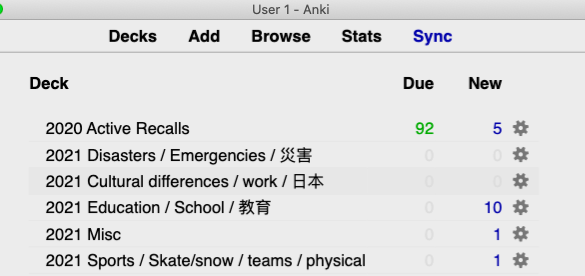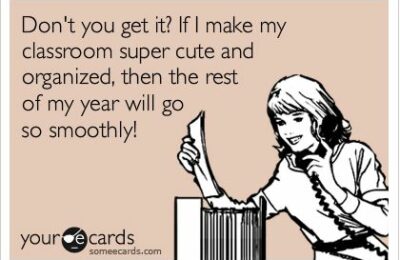
I’ve been studying Japanese since 2010, and have experimented with Anki flashcards as a way to increase my active spoken vocabulary. Through much trial and error, I’ve found the best way to do this is through the following 3-step process:
- Gather and record words by listening carefully to audio/video (pausing, slowing down as needed).
- Use Google and Youglish to find the most common contexts of the words (how it’s used).
- Make a flashcard deck for each theme you encounter in your listening (words from a video about cultural differences go in the “culture” deck; those from a podcast about government’s response to an earthquake might go in the “emergencies” or “politics/government” deck.)
- Study words on your own – go through each flashcard deck.
- Practice using words with a tutor – pick a deck and have a conversation about that topic, using the words from the deck. This ensure you are studying words thematically, and associating the words with the theme/topic they belong to. Another idea is to just pick any random word from a deck and start having a conversation related to that word.
- GATHERING WORDS: When I listen to a text (YouTube video, Podcast, etc.), I pause and slow down the video as much as needed to be able to catch new words/phrases/collocations. These I note down, look up in a dictionary, and perhaps do a Google or Youglish search to confirm the contexts that the word is most commonly used in. Remember, the goal is to improve the amount of vocabulary you can use, so context/topic is important.
- RECORDING WORDS: I record each word in a separate flashcard deck in Anki, based on theme. I have desks for words related to culture, natural disasters and emergencies, school and education, politics/government/law, technology/machines, food, weather, and so on. This ensures the vocabulary is grouped and learned by theme, the effectiveness of which is well-established in research.
- STUDYING WORDS: I study each deck with Anki, trying to recall the video/audio I listened to about those words. Imagine the theme of the flashcard deck! I try to avoid looking at the words like they’re disconnected from context and floating in a big pot of “word soup.” Instead, remember the contexts you encountered the words in, and talk to yourself with the words why you review them!
- PRACTICING WORDS: With a tutor or friend, I pick a random word from one of the decks and start having a conversation related to that word. Naturally, the conversation will center around the theme of that flashcard deck. This allows me to use other words from that same theme, and actively recall the words many times. For example: if we pick a word like “quarantine,” the conversation also likely center around COVID-19 and thus present chances to use other target words and phrases in that same deck, like restriction, government, announce, spread, wear a mask, stay at home.

